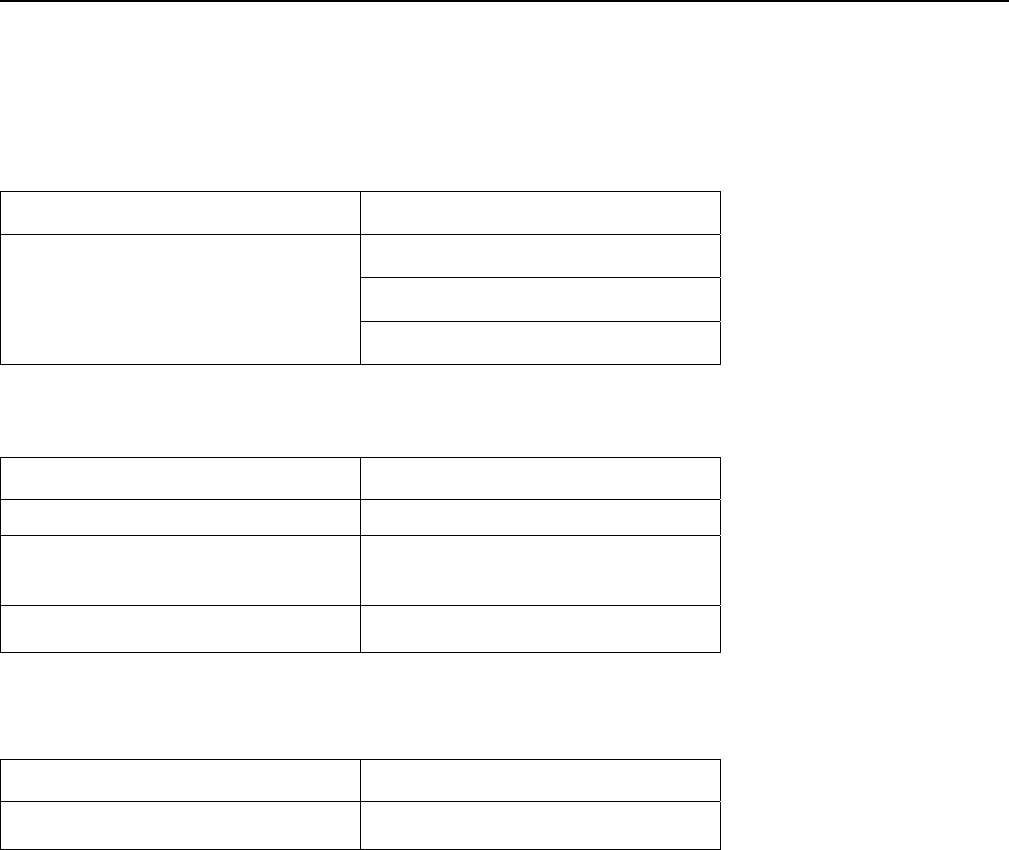Itron 963 Gas Pulse Interface User Manual Commercial Industrial Gas Meter IMU Interface
Silver Spring Networks Gas Pulse Interface Commercial Industrial Gas Meter IMU Interface
Itron >
Contents
- 1. Operations User Manual
- 2. User Manual
Operations User Manual

Applicant: Silver Spring Networks, Inc. Gas Pulse Interface FCC ID:OWS-963
Commercial & Industrial Gas Meter IMU Interface
Operational/Installation and Specification Manual
Silver Spring Networks AxisPathTM Network

Applicant: Silver Spring Networks, Inc. Gas Pulse Interface FCC ID:OWS-963
Copyright 2003 Silver Spring Networks, Inc.
13000 West Silver Spring Drive
Butler, Wisconsin 53007
Phone: 262-783-0200
Fax: 262-783-0205
Internet: www.silverspringnetworks.com
FCC WARNING STATEMENT
Note: This equipment has been tested and found to comply with the limits for Class B digital device,
pursuant to Part 15 of the FCC Rules. These limits are designed to provide reasonable protection against
harmful interference in a residential/office installation. The equipment generates, uses and can radiate
radio frequency energy and, if not installed and used in accordance with the instructions, may cause
harmful interference to radio communications. However, there is no guarantee that interference will not
occur in a particular installation. If this equipment does cause harmful interference to radio or television
reception, which can be determined by turning the equipment off and on, the user is encouraged to try to
correct the interference by one or more of the following measures.
• Reorient or relocate the receiving antenna
• Increase the separation between the equipment and receiver
• Connect the equipment into an outlet on a circuit different from that to which the receiver is
connected
• Consult the dealer or an experienced Radio/TV technician for help
CAUTION
Changes or modifications not expressly approved by Silver Spring Networks, Inc.
could void the user’s authority to operate the equipment.
The antenna on this device is professionally installed.
Note
The device complies with Part 15 of the FCC rules. Operation is subject to the following two conditions:
1. The device may not cause harmful interferences.
2. The device must accept any interference received, including interference that may cause undesired operation.
Confidentiality Statement: The information, graphics, and materials in this document are confidential and proprietary.
Document Revision Number: 1.0.2

Applicant: Silver Spring Networks, Inc. Gas Pulse Interface FCC ID:OWS-963
Contents______________________________________________
Preface……………………………………………………………………………………………………. iv
Organization of Manual………………………………………………………………………………… iv
Documentation Conventions…………………………………………………………………………… iv
PART I C&I Gas Interface Theory and Installation .
Chapter 1 Theory of Operation…………………………………………………………………… 1-1
C&I Gas Interface Purpose………………………………………………………………………. 1-1
Functionality……………………………………………………………………………………… 1-1
Components………………………………………………………………………………………. 1-1
Chapter 2 Specifications…………………………………………………………………………… 2-1
Chapter 3 Installation and Initialization………………………………………………………….. 3-1
Introduction………………………………………………………………………………………. 3-1
Safety Information………………………………………………………………………………... 3-1
Installation Procedures……………………………………………………………………………. 3-2
Equipment Needs……………………………………………………………………………… 3-2
Download Work Orders from the Utility Network……………………………………………. 3-2
Before Installation……………………………………………………………………………… 3-3
C&I Gas Interface End-Point Device Installation……………………………………………... 3-4
Complete and Close the Task………………………………………………………………….. 3-9
After Installation……………………………………………………………………………… 3-10
Chapter 4 Troubleshooting………………………………………………………………………… 4-1

Applicant: Silver Spring Networks, Inc. Gas Pulse Interface FCC ID:OWS-963
Preface_______________________________________________
Organization of Manual
This manual is divided in the following manner:
• “C&I Gas Meter Interface Theory and Installation”, provides information specific to the IMU end-point device.
• “Theory of Operation”, containing a basic overview of the Silver Spring Networks AxisPathTM network and
how the C&I Gas Meter Interface end-point device functions within the network.
• “Installation and Initialization”, containing step-by-step IMU end-point device installation and initialization
instructions.
• “Troubleshooting”, containing IMU-specific system troubleshooting information.
Document Conventions
This document uses a number of conventions designed to help communicate specific information. These
conventions include the following:
• Danger, Warning, and Caution:
DANGER!
Danger messages alert you to situations that will cause
personal injury or death if you do not follow the instructions
correctly.
WARNING!
Warnings alert you to situations that may potentially cause
personal injury or death if you do not follow the directions
correctly.
CAUTION
Cautions alert you to situations that may result in damage to
the hardware or software if you do not follow the
instructions correctly.

Applicant: Silver Spring Networks, Inc. Gas Pulse Interface FCC ID:OWS-963
Chapter 1___________________________________________________
Theory of Operation
C&I Gas Meter Interface Purpose
The C&I Gas Meter Interface is a programmable end-point device, designed to replace or supplement a customer’s
existing mechanical utility meter index. Using a magnetic pulse output adapter to interface to the meter output, it
can be installed on a variety of meter brands.
The C&I Gas Meter Interface end-point device allows for accurate, near-real-time customer utility use information,
which can be read from a remote location.
Functionality
The C&I Gas Meter Interface end-point device performs two basic functions:
• Gathering and recording customer utility use information directly at the metering point.
• Sending and receiving messages to and from the utility company computer system such as:
- Utility use, status, alarm data, and similar information.
- Data requests, configuration, and verification messages.
C&I Gas Meter Interface end-point devices communicate with the utility company computer system using a
combination of Local Area Networks (LAN), AxisGateTM nodes, and a Wide Area Network (WAN).
Components
C&I Gas Meter Interfaces are Silver Spring Networks end-point devices, containing two primary components: a
digital processor and a radio transceiver.
The digital processor within the end-point device gathers and records utility use data at the metering point. Every
time the meter drive rotates, pulses are recorded by the digital processor. The pulses are converted into utility use
data, and this data is stored until readings are requested from the utility.
Each C&I Gas Meter Interface also contains a 900MHz two-way radio frequency (RF) transceiver. This radio
provides communication between the end-point device, and an AxisGateTM node. Depending upon the
communication distance involved, and Silver Spring Networks relay might be used between the end-point device
and the node, to extend RF communications. This RF connection between the end-point device and the node,
possibly through a relay, is a Local Area Network (LAN).
AxisGateTM nodes then communicate with the rest of the AxisPathTM network using a Wide Area Network (WAN).
This communication allows C&I Gas Meter Interfaces to transmit use data to the utility, or to receive requests or
programming instructions from the utility, or from a technician or installer using a Field Service Unit attached to a
laptop computer.
See Silver Spring Networks publication 98-00004 (System Summary) for a more detailed explanation of
communications on the Local Area Network (LAN) and Wide Area Network (WAN).

Applicant: Silver Spring Networks, Inc. Gas Pulse Interface FCC ID:OWS-963
Chapter 2_____________________________________________
Technical Specifications
C&I Gas Meter Interface Features
• Full Two-way 900 MHz spread-spectrum communications between the IMU and the utility
• Direct sequence spread-spectrum communication improves security
• 17 channels allow frequency coordination in dense applications with minimal interference
• Software programmable configuration and control profiles
• 3.6-volt lithium-based long life battery pack
• Unique serial number and assignable PIN
• Autonomous tamper alarms
• Professionally installed antenna
• Virtual Shut-off capabilities
• Run-away meter detection
• First/Final Reading
• Customer Selectable Billing Dates
• Data and Intelligence Stored in the Meter
Item Specification
Physical dimensions 6.67”L X 4.76”W X 2.19”H
Weight 2.7 lbs.
Power supply (3) 3.6 volt D-cell lithium-based battery pack
Output power 20 dBm
Sensitivity >40 dBm SINAD
Channels 17 (spaced at 1.5 MHz)
Frequency range 903 to 927 MHz
Modulation Direct Sequence Spread Spectrum
Base data rate 62.5 KB / second
Compliance FCC Part 15, Class C
Interface RF LAN
Antenna type Internal
Enclosure Lexan NEMA 4X Enclosure
Temperature range -40° to +85°C

Applicant: Silver Spring Networks, Inc. Gas Pulse Interface FCC ID:OWS-963
Chapter 3_____________________________________________
Installation and Initialization
Introduction
This section includes a set of detailed procedures for installation, configuration, and testing.
CAUTION
Read and study the following safety information before you
proceed with installation. In addition, cautions and warnings
appear within procedures and throughout the test, where
appropriate, to remind you of any related safety information.
Safety Information
• The antenna on this device is to be professionally installed. Contact the supplier or manufacturer for further
instructions and see additional information below
• Observe the following safety guidelines. Careful planning of every job is essential. Nothing should be taken
for granted. Do not take chances!
• Read and follow all approved policies and procedures provided by your employer associated with the
procedures in this manual.
• Keep the work area clean and dry. Cluttered work areas cause accidents and injuries.
• Provide good lighting in the work area. You cannot work safely if you cannot see what you are doing.
• Report unsafe conditions or defective equipment to your immediate supervisor.
• Select the right tool for the job. Use tools properly. Keep tools in good working order.
• Handle materials carefully. Lift and carry properly.
• Keep unauthorized people out of the work area. Be especially cautious of children, who tend to be drawn to
work activity.
• Silver Spring Networks Inc. assumes no liability for the customer’s failure to follow these safety guidelines.
Equipment Needs
This section lists, and briefly describes, the various pieces of equipment required for C&I Gas Meter Interface end-
point device installation, initialization, and testing processes.
• Laptop computer-Runs the FSA software, which stores and retrieves work order information, and configures
and tests installed C&I Gas Meter Interfaces.
• Field Service Unit-900 MHz two-way radio frequency (RF) transceiver, allowing communication with an IMU
for initialization.’

Applicant: Silver Spring Networks, Inc. Gas Pulse Interface FCC ID:OWS-963
INSTRUCTIONS TO INSTALLERS AND USERS
Minimum Safe Distance from Antenna: 20cm (approximately 8inches)
Antenna Mounting
• The antenna as supplied by the manufacturer must not be mounted at a location such that any person or persons
can come closer than the above-indicated minimum safe distance to the antenna
Antenna Substitution
• Do not substitute any antenna for the one supplied by the manufacturer. You may be exposing persons to
harmful radiation. Contact supplier or manufacturer for further instructions.

Applicant: Silver Spring Networks, Inc. Gas Pulse Interface FCC ID:OWS-963
Before Installation
Field Service Unit Set-Up
The Field Service Unit is a 900 MHz two-way radio frequency (RF) transceiver, used for configuring and
testing Silver Spring devices.
After arriving at the customer site, activate and test the Field Service Unit as follows:
CAUTION
DO NOT turn the Field Service Unit ON if
the antenna is not installed. Damage to
the Field Service Unit will result.
1. Plug the Field Service Unit connection cord into the serial port of the laptop computer.
2. Plug a 9 VDC / 500 mA power supply into the Field Service Unit power socket.
CAUTION
Using anything other than a 9 VDC /
500 mA power source may damage the
Field Service Unit.
3. Turn on the Field Service Unit. An indicator light will shine if the
Field Service Unit power supply is functioning correctly.
Installation Procedure
1. Remove index register from C&I gas meter. For American, Rockwell and Sprague meters, remove the index
register and replace with the Pulsimatic pulse output register or the RioTronics index register with pulse output.
For a Roots meter interface, attach the appropriately modified register head with pulse output to the meter
before installing the pulse output pickup device.
2. Attach the Silver Spring Networks C&I Gas Meter Interface (p/n 1620-05001) to a surrounding fixture to the
gas meter. Fixturing locations can include the meter piping, meter fixturing brackets or surrounding structures.
3. Attach the cable assembly from the Pulsimatic or RioTronics pulse output generator to the Silver Spring
Networks C&I Gas Meter Interface (p/n 1620-05001). The cable assembly attaches with a ‘push and twist’ lock
for the weather-resistant seal.
Start the Field Service Application
Note
See Silver Spring Networks publication 98-00001 (Field Service Application User’s Guide) for a more detailed
explanation of FSA operation.
1. Turn on the laptop computer.
2. Launch the FSA software. No error messages will display if the connection between the computer and the Field
Service Unit is working.
3. Log in to the Field Service Application.

Applicant: Silver Spring Networks, Inc. Gas Pulse Interface FCC ID:OWS-963
Install the Pulse Output Interface Device
For American/Sprague and Rockwell meters, interface with either the Pulsimatic pulse output adapter or the
RioTronics adapter.
• Install the Pulsimatic unit in line with the index register and upon installation of the unit, replace the index
register on top of the Pulsimatic.
• Install the RioTronics-enabled index register in place of the existing index register.
For Dresser Industries’ Roots meters, please follow the instructions for installation of the RioTronics Interface
module.
Install the Silver Spring Networks C&I Gas Meter Interface radio device to the surrounding structure which can
include the meter piping, meter fixtures/supports or some adjacent structure to the meter.
Connect the meter pulse output device to the C&I Gas Meter Interface by using the weather-resistant cable assembly
from the pulse output device.
Setup the Radio for Communication through the Gateway

Applicant: Silver Spring Networks, Inc. Gas Pulse Interface FCC ID:OWS-963
Chapter 4_____________________________________________
Troubleshooting
Table 3-1 Troubleshooting the C&I Gas Meter Interface
Problem Possible Solution
C&I GMI end-point device ID mis-match
RF channel mis-match
C&I Gas Meter Interface fails to
respond to the Field Service
Application (FSA).
Replace C&I GMI end-point device
Table 3-2 Troubleshooting the Laptop Computer/Field Service Unit
Problem Possible Solution
Laptop computer does not power up Charge/replace battery
Laptop computer does not start up
properly and/or the Field Service
Application cannot be found.
Contact System Administrator
Field Service Unit does not power up Check power source and power circuit
connections.
Table 3-3 Troubleshooting the Field Service Application (FSA)
Problem Possible Solution
Error message displays when Field
Service Application (FSA) starts up.
Check field service unit connection.